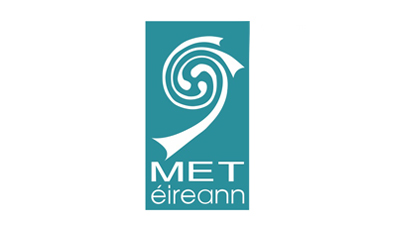1 July 2023
By Tom Collins
tom@TheCork.ie
Average temperatures of 16+°C break 83-year-old record
Met Éireann announces that June 2023 will be the hottest June on record. Provisional data shows that Ireland has experienced its first June with 16+°C average temperatures, exceeding the previous June record which held for 83 years. June 2023 is set to be more than half a degree higher than June 1940.
The highest temperature of 2023 so far, 28.8°C, was reported at Oak Park in Co Carlow on Tuesday 13th June. This is the third consecutive year that a temperature at or above this value has been observed in Ireland.
Met Éireann’s Climatologist, Paul Moore says,
“Although temperatures have fallen in recent days, they will not prevent this June’s record-breaking situation. This year’s particularly warm June is part of an observed warming trend and our research shows that this trend will continue. Our recently published TRANSLATE project provides a reminder that right across society we need to understand and plan for a changing climate”.
“An average monthly temperature of greater than 16°C has been seen in July and August but never before in June. June 2023 was well above normal due to persistent warm days and nights.”
“Twenty-three of twenty-five Met Éireann primary weather stations are showing their warmest June on record. In early June, cool easterly winds on the east coast meant that Phoenix Park and Dublin Airport stations were cooler but they still show their warmest June since 1976.”
Climate change makes record-breaking temperatures like these more likely, and the recent marine heatwave off the coast of Ireland has brought extreme sea-surface temperatures to Irish shores.
Met Éireann researcher Dr. Pádraig Flattery explains,
“As climate change continues, we can expect further records to be broken and more frequent and extreme weather events. A warmer atmosphere can hold more moisture (about 7% for every 1°C of warming) and warmer waters, in turn, provide more energy for storms and can contribute to extreme rainfall events.”
This June and especially over the past two weeks, Ireland has seen nine days of intense thunderstorm activity, with heavy downpours, lightning and at times, hail. These were dynamic systems which Met Éireann actively monitored to ensure warnings were in place. While this prolonged spell of thunderstorms has not been the norm in Ireland, going forward we are likely to see more of this type of weather as the climate warms.
The World Meteorological Organisation recently warned that Europe is warming twice as fast as other continents. 16,000 people died as a result of extreme heat last year and widespread droughts caused significant economic impacts. The rate of June heatwaves has tripled in Spain in the past 12 years. June 2023 was also the warmest June of record for the UK.
The provisional statement of June 2023’s past weather and climate will be published on Met Éireann’s website on Tuesday 4th July 2023. This will also include information on Irish rainfall and sunshine at the various Met Éireann primary weather stations.
Met Éireann’s June 2023 Climate analysis:
- In 2023, while June is the first month expected to break records for Ireland, February was the 5th warmest, April the 10th warmest and May 2nd warmest on record.
- June 2023 was the 8th consecutive June above normal, as June 2015 was below normal for June.
- June 2023 was also the 7th consecutive month above normal, as December 2022 was below normal.
- Of the top ten warmest Junes on record, half of those have occurred since 2005, that is (in order of warmest) 2023, 2018, 2010, 2006 and 2005.
- Athenry, Co Galway and Shannon Airport, Co Clare experienced 27 consecutive days with maximum air temperatures > 20.0 °C, ending on Saturday 24th June 2023. Summer 1995 observed 36 consecutive days at various stations in Leinster, ending on Saturday 26th August 1995.
- Newport, Co Mayo experienced 5 consecutive nights where air temperatures did not fall below 15.5 °C, ending on Wednesday 14th June 2023.
- Climate Statement for the month June 2023 will be published on Tuesday 4th July at https://www.met.ie/about-
us/latest-news, as done at the end of every month.


